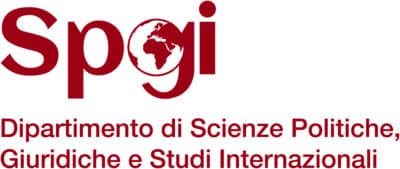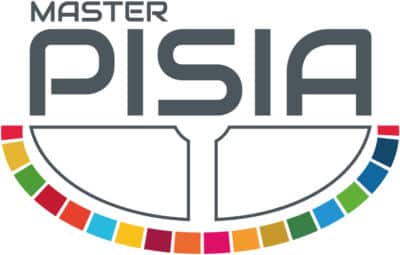

The Second-level short specialisation degree in Innovation, Design and Assessment of Service Policies – 2030 Agenda, accredited by the Department for Public Administration, trains operators of the public and private sectors (and newly-graduates) to develop new competencies and abilities to tackle the next challenges related to the Recovery and Resilience Plan.
The course promotes:
- considerations on public assets and the innovative collaborative governance capacity, for the creation of public value through policies, services and digitization
- development of human resources, soft skills and competencies that can foster the activation and acceleration of innovation, through cutting-edge planning approaches (co-design and gamification)
- assessment of policies (counterfactual approach and theory of change), and performance through service quality (design thinking)
- creation of public value through public databases (text mining) within the policymaking framework
- acquisition of behavioural techniques (nudges) to tackle sustainability issues, especially concerning sustainable tourism.
The Second-level short specialisation degree strategically focuses on the after-pandemic recovery, by involving the figures and professionals of the public sector.
The course units of Second-level short specialisation degree in Innovation, Design and Assessment of Service Policies – 2030 Agenda offer a multidisciplinary environment that foster comparison and integration between topics and approaches, the exchange of ideas and professional experiences from diverse institutional and territorial contexts.
Specific attention is given to local, regional and national policies within the 2030 Agenda, to public utility services and to the impact of new technologies on the renewal of organizations, instruments and innovative approaches that promote partnerships between the public, private and people. Ample attention is given to policy design and sustainable tourism, digital Agendas (European, national and regional), the use of AI, public textual databases, personal data protection, design thinking, organizational innovation and quality of services (also digital) to citizens.
The mission is also strengthening cross-sectional work methods, soft skills, and innovative ideas and techniques of policy design, management and sustainable policy assessment. In this context, attendees will learn involvement, motivation and cooperation techniques to promote sustainable innovation, and the improvement policies of the democratic governance, according to the approach set forth by the 2030 Agenda.
The topics of sustainable development will be unfolded and adapted to the COVID-19 post-emergency context.
The Second-level short specialisation degree in Innovation, Design and Assessment of Service Policies – 2030 Agenda resorts to the contribution of professors from seven different Departments of the University of Padua, and professors from other Italian and European Universities.
The Second-level short specialisation degree in Innovation, Design and Assessment of Service Policies – 2030 Agenda prepares:
- Students with a Second-level short specialisation degree, doctorate or equivalent titles, who wish to improve their skills and policy competencies
- Public administrators
- Region, local, state and public utility managers;
- Relevant organization and non-profit association managers
- Experts, quality and consumer protection managers for private and public associations, institutions and companies
- Tourism and sustainability sector managers
- Experts of national and regional high-technology services and policy assessment
- University administrative managers and technicians
- Experts of public relations, image and communication, in the public and private sector
- Members of independent evaluation associations and evaluation units
- Personal data protection officers
Enriched with new, qualifying competencies and soft skills, such as policy advisor, policy designer, policy evaluator, textual database analyst and innovation manager, attendees – at all organizational and institutional levels – can become the interpreters and accelerators for innovation, a crucial lever so that the Country’s modernization and digitization are truly successful.
The Second-level short specialisation degree in Innovation, Design and Assessment of Service Policies – 2030 Agenda provides training and project work on:
CHANGE, STRATEGIC LEADERSHIP, COMMUNICATION, PUBLIC, PRIVATE PEOPLE PARTNERSHIP THEORIES
- Innovation and public value generation theories
- Decision-making and innovation processes
- Smart and soft work in public and private contexts
- Nudge techniques to improve the effectiveness of policies and services
- HR assessment and organizational innovation strategies and techniques
- Social media and public communication
DIGITAL TRANSITION (DIGITAL AGENDAS)
- Sustainable innovation values, strategies and tools in light of new technologies
- Information and service innovation technology
- Big and open data, interdependencies, integration and regulation
- Privacy law: big data and organizations
- Cognitive processes and innovation ecosystem creation
- Machine learning, AI and applications in the public sector
EVALUATION OF THE IMPACT OF POLICIES, PERFORMANCES AND SERVICE QUALITY
- Social impact analysis and participatory evaluation
- Investment risk and evaluation – Social-healthcare service integration and evaluation
- User and consumer satisfaction and protection
- Change communication and evaluation: textual analysis
- Public intervention cost/benefit analysis
- PA/company interaction quality measurement
There will also be SINGLE COURSES organized as follows:
- Nudging and public policies / 35 hours / 3 CFU
- Data governance: public database textual analysis / 25 hours / 3 CFU
- 2030 Agenda policies and performance assessment; Social impact analysis and participatory evaluation / 45 hours / 5 CFU
- Personnel assessment and human resource promotion systems / 15 hours / 2 CFU
- Integrated cost-benefit analysis for policy sustainability / 21 hours / 3 CFU
The Second-level short specialisation degree and Single Course “2030 Agenda policies and performance assessment; Social impact analysis and participatory evaluation” are included in the ongoing education catalogue for the Lifelong Learning of Independent Assessment Bodies.
Furthermore, the Second-level short specialisation degree is part of the Erasmus+ “Nudge my Tour” – that promotes a behavioural approach to sustainable tourism – and “Playing public policy” – on the use of gamification in analysing and designing public policies – European projects.
The Second-level short specialisation degree adheres to the INPS Competition Call for University Masters “Executive” 2025-2026.
The announcement will be available according to the INPS timing on this site.
BCC Veneta is offering two full-cost scholarships, reserved for its members and children of members with a degree under the old system, a specialist degree under Ministerial Decree 509, or a master’s degree under Ministerial Decree 270, for the second-level Master’s degree “PISIA – Innovation, planning and evaluation of policies and services – Agenda 2030”, academic year 2025/26.
Deadline for submitting applications: October 7, 2025 (12:30 p.m., online application deadline).
Attached:
- Information document for applying for the BCC Veneta scholarships
- PISIA Master’s Selection Notice
The general ranking of merit for the academic year 2025/26 will be published on the Italian page of this Second-level short specialisation degree according to the timing provided in the Call.
An agreement has been signed with the Presidency of the Council of Ministers – Department for Digital Transition, allowing Department staff who are not employed by a Public Administration to enroll in the Second-level short specialisation degree PISIA for the 2025/2026 academic year, benefiting from a 10% discount, applied when paying the second installment of the Second-level short specialisation degree.
Single course
Information
FAQ
The Second-level short specialisation degree consists of a total of 308 hours and runs from December 2025 (19 December 2025) to October 2026 on Fridays from 09.00 to 13.00 and from 14.00 to 18.00 and on average twice a month on Saturdays from 09.00 to 13.00.
The lessons will be in dual mode: face-to-face in Padua at the Department of Political, Legal and International Studies of the University of Padua and remotely live on the Zoom platform.
Even for single courses, there will be the possibility of participating in presence and remotely, live on the Zoom platform without participating in group work, which will only be held in the classroom.
The selection criteria of the participants will consist of:
- Curriculum Vitae: 33/60 (maximum score)
- Thesis: 2/60 (maximum score)
- Other publications: 3/60 (maximum score)
- Other qualifications that the candidate deems useful: 5/60 (maximum score)
- Presentation letter from the organization only for public administration employees who intend to participate in the INPS call: 12/60 (maximum score)
Overall min/max score: min: 20 – max: 60
If there are more questions than there are places, an interview may be scheduled.
Yes, a public body can register for one of its employees. In this case, please contact the Second-level short specialisation degree’s organizational secretariat to get specifics on the procedure to follow and finalize the registration.
All Public Administration employees who enroll in the Second-level short specialisation degree enjoy a discount of 330 euros on the contribution of the second instalment, even in the event of payment of the registration fee by another person, for example by the belonging body.

